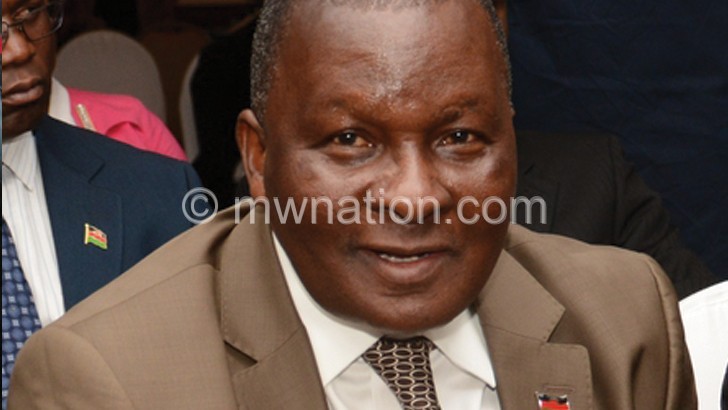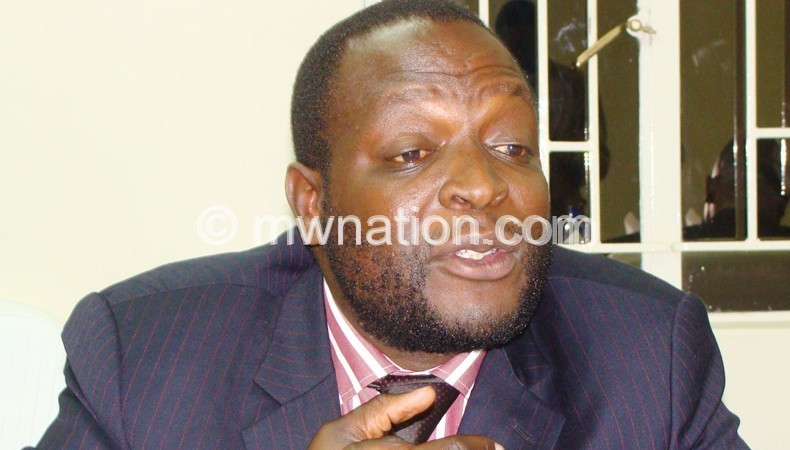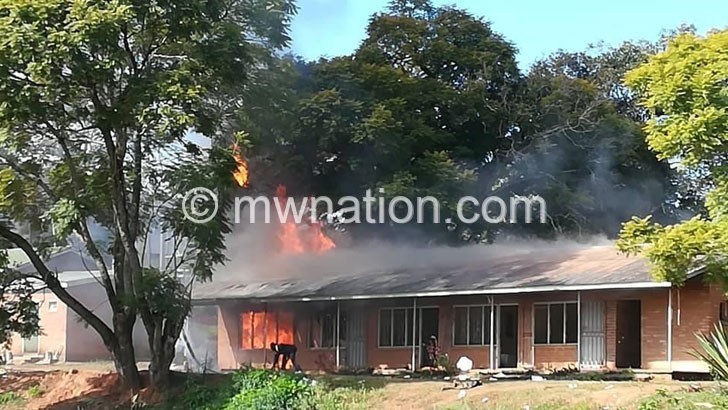Mulli payout haunts government
Two Cabinet ministers have stammered on why government is now enforcing liability for demonstration damages on organisers yet Capital Hill paid K3 billion to Leston Mulli-owned firms for destructions suffered during the 2011 protests using the same laws ignored in the politically-connected businessperson’s claim.
In separate interviews on Monday, Minister of Justice and Constitutional Affairs Bright Msaka and government spokesperson Mark Botomani dodged addressing accusations of double standards in handling of the 2011 and 2019 demonstration damage claims.

Asked on Tuesday why government last year paid off Mulli for damages during July 20 2011 demonstrations while the same Police Act of 2010 was in effect and now Capitol Hill has shifted responsibility to organisers of the ‘Jane Ansah Must Fall’ protests, Msaka refused to give a straight answer.
Instead, he accused The Nation of trivialising the issue.
“I think you are trivialising that issue. Let the law take its course on this one, there is law and it has to be followed, I can’t comment more,” said Msaka.
Yet, the same Peter Mutharika administration did not let the law take its course last year when it abandoned a default judgement appeal in the Supreme Court in favour of a Release Agreement that saw Mulli getting coupon bonds worth K3 048 557 708.71 in an out-of-court settlement that at the time private practice lawyer Bright Theu described as “dubious” and “questionable”.

That payment to Mulli—a ubiquitous figure in the ruling Democratic Progressive Party who at the time of the payout owed government K4.9 billion in unpaid loans at the defunct State-owned Malawi Savings Bank—was authorised on April 13.
Given that the coupons were set to mature in a year; those instruments should be in hard cash today at the expense of the taxpayer.
The damages that Mulli claimed and which were entertained by government are similar to those which the administration now wants demonstration organisers, including the Human Rights Defenders Coalition (HRDC), to shoulder.
It is an inconsistency that Botomani—the Minister of Information, Civic Education and Communications Technology—declined to comment on even as critics on Tuesday dubbed the move “double standards” on the part of government.
Since the demonstrations on June 20 as well as on July 4 and 5, Cabinet ministers have pressed home the same narrative that organisers pay for the cost of damages and personal injuries emanating from the demonstrations.

For example, in a July 8 2019 statement on “Legal redress for all those that have suffered personal injuries, property loss and damage during the recent assemblies and demonstrations”, Homeland Security Minister Nicholas Dausi urged people who have suffered personal injuries and those organisations—including ministries, departments and agencies—whose property was vandalised during the demonstrations, to send them to his ministry for a class lawsuit against conveners and organisers of the demonstrations. Dausi cited Section 106 of the Police Act.
It was the same narrative that Msaka pushed in his Ministerial Statement to the National Assembly on July 12 2019.
He invoked Section 106(1) citing that if any riot damage occurs as a result of an assembly or a demonstration, every organisation on behalf of or under the auspices of which the assembly or demonstration was held, the convener, and every person participating in the assembly or demonstration, as the case may be, shall be liable for that damage as a joint wrong-doer together with any other person who unlawfully caused or contributed to such damage.
“By Section 106(2) any person or organisation held liable for riot damage under subsection (1) shall, notwithstanding that subsection, be deemed to be liable in any civil claim in respect of (a) recourse against, or contribution by, that person or organisation for intentionally and unlawfully causing or contributing to the cause of the riot damage; or (b) contribution by the other person who, or other organisation which, is jointly liable for the riot damage,” said Msaka.
But in an interview on Tuesday, University of Malawi’s Chancellor College law professor Edge Kanyongolo disputed Capital Hill’s interpretation of the law, saying the spirit of the legislation remains that only those directly responsible for vandalism or any damages to property should be penalised.
He also said even if police sought to enforce the interpretation of the law, it would be difficult to prove that the damages or the looters did that during demonstrations if the protests had a defined route and damage was done after the protests.
Said Kanyongolo: “I think there are two issues here; for organisers to pay you have to show that the looting was caused due to direct cause of the demonstrations or that there is a direct link with demonstrations to the looting or damages. But if the damage is done after the demonstrations are over, it is difficult to say that the damages were done because of the protests.”
The professor said by pushing for organisers to shoulder the cost of demonstrations, government is being hypocritical and playing double standards after the Attorney General ordered the payment of K3 billion to Mulli for what he claimed were damages to his businesses caused by July 20 2011 protesters.
“Government will appear to be playing double standards; it will be fair if it pays the others as well,” Kanyongolo said.
Malawi Human Rights Commission executive secretary David Nungu concurred with Kanyongolo in a separate interview, saying the commission’s position is that only those directly responsible for damages can be liable for their actions.
HRDC and Malawi Congress Party have since scoffed at the impending class lawsuit, saying the Constitution guarantees the right to expression, assembly and demonstration, which, according to them, overrides the dictates of the Police Act.





